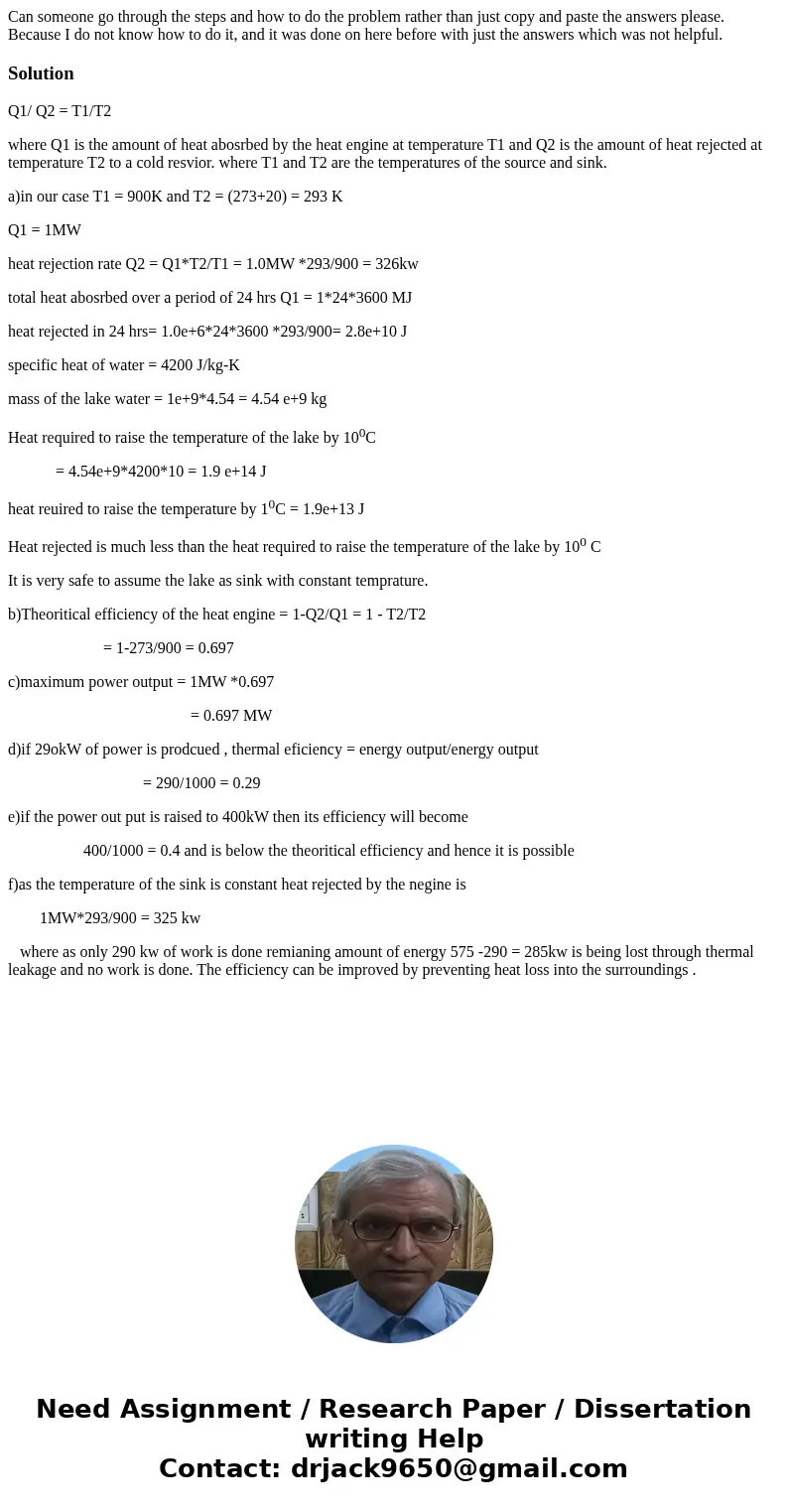Can someone go through the steps and how to do the problem r
Can someone go through the steps and how to do the problem rather than just copy and paste the answers please. Because I do not know how to do it, and it was done on here before with just the answers which was not helpful.
Solution
Q1/ Q2 = T1/T2
where Q1 is the amount of heat abosrbed by the heat engine at temperature T1 and Q2 is the amount of heat rejected at temperature T2 to a cold resvior. where T1 and T2 are the temperatures of the source and sink.
a)in our case T1 = 900K and T2 = (273+20) = 293 K
Q1 = 1MW
heat rejection rate Q2 = Q1*T2/T1 = 1.0MW *293/900 = 326kw
total heat abosrbed over a period of 24 hrs Q1 = 1*24*3600 MJ
heat rejected in 24 hrs= 1.0e+6*24*3600 *293/900= 2.8e+10 J
specific heat of water = 4200 J/kg-K
mass of the lake water = 1e+9*4.54 = 4.54 e+9 kg
Heat required to raise the temperature of the lake by 100C
= 4.54e+9*4200*10 = 1.9 e+14 J
heat reuired to raise the temperature by 10C = 1.9e+13 J
Heat rejected is much less than the heat required to raise the temperature of the lake by 100 C
It is very safe to assume the lake as sink with constant temprature.
b)Theoritical efficiency of the heat engine = 1-Q2/Q1 = 1 - T2/T2
= 1-273/900 = 0.697
c)maximum power output = 1MW *0.697
= 0.697 MW
d)if 29okW of power is prodcued , thermal eficiency = energy output/energy output
= 290/1000 = 0.29
e)if the power out put is raised to 400kW then its efficiency will become
400/1000 = 0.4 and is below the theoritical efficiency and hence it is possible
f)as the temperature of the sink is constant heat rejected by the negine is
1MW*293/900 = 325 kw
where as only 290 kw of work is done remianing amount of energy 575 -290 = 285kw is being lost through thermal leakage and no work is done. The efficiency can be improved by preventing heat loss into the surroundings .

 Homework Sourse
Homework Sourse